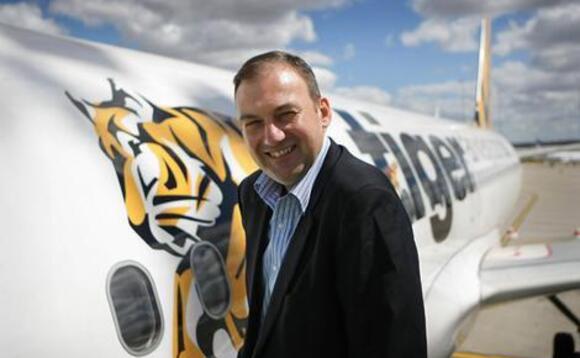
Tiger Airways launches more than IPO

Tiger Airways’ IPO on the Singapore Stock Exchange has signaled optimism about the strength of the public markets, and has also sparked moves by its competitors as the airline seeks to raise up to $200 million to fund expansion and the purchase of 50 new airplanes over the next five years.
While the IPO may not signal a return of the markets in Singapore – an exchange that saw just one IPO last year – it is certainly an indication that confidence is returning to the region.
According to Tiger's prospectus, the company will be selling around 30% of its enlarged share capital, 95% of which is new. This amounts to 165.155 million shares in total, a small percentage of which will be sold off by US-based private equity firm Indigo, currently the owner of a 24% stake.
The low-cost carrier also counts Singapore Airlines (49%); Temasek Holdings, through its wholly-owned subsidiary Dhalia (11%); and the Ryanair family's company, Ryanasia (16%), as investors. All will remain invested according to a source.
Tiger has grown at a clip since it launched in September 2004. In spite of rising fuel costs, a decrease in the number of travelers as a result of the financial crisis, and stiff competition, particularly in the low-cost carrier subsector, Tiger has remained profitable in its Singapore operations. It reported a loss due to setting up its Australia operations in the year ending March 2009.
The airline set its price range at S$1.35–1.65 ($0.97-1.19), translating into 11.4–14x forward earnings for the year ending March 31, 2011. This is slightly lower than the 12.9x forecast for AirAsia, and between 14.2-17x forecasted for Ryanair, depending on the analyst.
On the day of the IPO launch, Jetstar – a subsidiary of Qantas – and AirAsia announced they would join together in a non-equity alliance to reduce costs, share expertise and lower ticket prices. The two claimed that they would also look at the possibility of joint procurement of aircraft and engineering supplies and services, cooperation in passenger and baggage handling, and the pooling of inventory arrangements for aircraft components. This strategy of stealing another airline's IPO thunder has been used before, most recently by Norwegian Air Shuttle in November 2009, when competitor Cimber Sterling of Denmark was launching an IPO. NAS's intervention – announcing new routes and services on the day – led to a halving of the IPO valuation.
That however, is not expected to be the outcome in this situation, as analysts have immediately taken the ‘tie-up' with a large grain of salt. Additionally, it is understood Tiger always anticipated raising about $200 million, in line with what bankers said last summer. Still, it does put pressure on Tiger as it embarks on its roadshow.
Citi and Morgan Stanley are the joint bookrunners for the IPO. DBS is acting as a joint lead manager and coordinator for the Singapore retail offering.
Latest News
Asian GPs slow implementation of ESG policies - survey
Asia-based private equity firms are assigning more dedicated resources to environment, social, and governance (ESG) programmes, but policy changes have slowed in the past 12 months, in part due to concerns raised internally and by LPs, according to a...
Singapore fintech start-up LXA gets $10m seed round
New Enterprise Associates (NEA) has led a USD 10m seed round for Singapore’s LXA, a financial technology start-up launched by a former Asia senior executive at The Blackstone Group.
India's InCred announces $60m round, claims unicorn status
Indian non-bank lender InCred Financial Services said it has received INR 5bn (USD 60m) at a valuation of at least USD 1bn from unnamed investors including “a global private equity fund.”
Insight leads $50m round for Australia's Roller
Insight Partners has led a USD 50m round for Australia’s Roller, a venue management software provider specializing in family fun parks.







